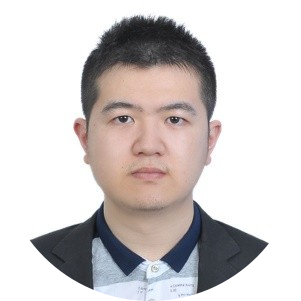Chair: Dr. Yuanxing Xia, Hohai University, China
 Yuanxing Xia received the B.Sc. degree in electrical engineering from Hohai University, Nanjing, China, in 2019, and the Ph.D. degree in electrical engineering with the School of Electrical Engineering, Southeast University, Nanjing, China, in 2023. He is currently an Assistant Professor with the College of Electrical and Power Engineering, Hohai University. His research interests include the energy storage technology and P2P power transaction. As the first/corresponding author, He has published more than 50 SCI/EI indexed journal papers. Dr. Xia serves as the editor and topic editor of PCMP, IET ECE, Plos One, Electronics, and Frontiers in Energy Research.
Yuanxing Xia received the B.Sc. degree in electrical engineering from Hohai University, Nanjing, China, in 2019, and the Ph.D. degree in electrical engineering with the School of Electrical Engineering, Southeast University, Nanjing, China, in 2023. He is currently an Assistant Professor with the College of Electrical and Power Engineering, Hohai University. His research interests include the energy storage technology and P2P power transaction. As the first/corresponding author, He has published more than 50 SCI/EI indexed journal papers. Dr. Xia serves as the editor and topic editor of PCMP, IET ECE, Plos One, Electronics, and Frontiers in Energy Research.
Co-chair: Assoc. Prof. Yu Huang, Nanjing University of Posts and Telecommunications, China

Yu Huang received his B.S. degree from Nanjing University of Aeronautics and Astronautics, Nanjing, China, in 2015, and the Ph.D. degree from Southeast University, Nanjing, China, in 2020, both in Electrical Engineering. He is currently an associate professor with the Institute of Carbon Neutrality and Advanced Technology, Nanjing University of Posts and Telecommunications, China. He was a Visiting Research Scholar with Department of Electrical and Computer Engineering, Purdue University, West Lafayette, IN, USA. As the first/corresponding author, He has published more than 20 SCI/EI indexed journal papers. Dr. Huang served as the technical committee member and session chair of several IEEE/international academic conferences. His research interests include power system operation and optimization, uncertainty quantification and risk analysis of renewable integrated systems.
Co-chair: Assoc. Prof. Yang Li, Hohai University, China

Yang Li, born in 1992, received the B.S. degree and the Ph.D degree in electrical engineering from Zhejiang University, Hangzhou, China, in 2014 and 2019. He spent a year as a visiting scholar at Illinois Institute of Technology from 2017 to 2018. He joined College of Energy and Electrical Engineering of Hohai University in 2019. He was selected as the fourth level of Dayu Scholars of Hohai University in 2021. He undertakes the Youth Project of the National Natural Science Foundation of China and the Youth Project of the Natural Science Foundation of Jiangsu Province. The main research interests include the optimization of multi-energy complementary systems.
